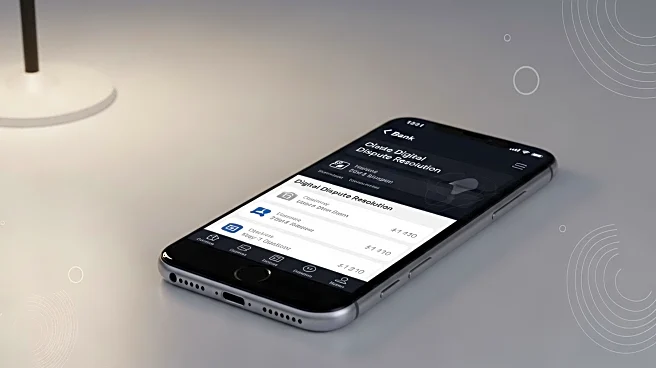What's Happening?
A significant shift in consumer behavior is occurring as younger shoppers increasingly bypass merchants and use banking apps to resolve purchase disputes. According to the Chargebacks911 2025 Cardholder Dispute Index, consumers aged 18 to 44, particularly Gen Z and millennials, are driving this change. They prefer mobile-first solutions and expect instant resolution, often disputing transactions directly through banking apps rather than contacting merchants. This trend poses a threat to customer loyalty for merchants, as younger consumers prioritize convenience and speed in resolving issues. Monica Eaton, CEO of Chargebacks911, emphasizes the need for merchants to adapt by investing in digital dispute prevention efforts, such as transparent billing and streamlined refund processes, to remain competitive.
Why It's Important?
The shift towards bank-first dispute resolution has broader implications for U.S. businesses, particularly in the retail sector. Merchants face the risk of losing customer loyalty and increased operational costs due to frequent disputes. As younger consumers continue to favor instant solutions, businesses must adapt their customer service strategies to meet these expectations. Failure to do so could result in a loss of revenue and a damaged reputation. Additionally, the rise of alternative payment methods like buy now, pay later (BNPL) services adds complexity to transactions, increasing the likelihood of disputes. Merchants need to streamline their processes and collaborate with banks to prevent chargebacks and maintain customer trust.
What's Next?
Merchants are encouraged to redesign their customer experience to prevent disputes before they reach banks. This includes implementing explicit billing descriptors, instant receipts, proactive shipping updates, and automated refund options for low-risk claims. Real-time support across various channels is also recommended. Furthermore, merchants should partner with banks and payment networks to enable real-time collaboration and deflect invalid disputes. As the consumer expectation for instant refunds and one-tap resolutions grows, businesses must treat dispute prevention as an integral part of the customer experience to secure loyalty.
Beyond the Headlines
The ongoing technological growth in digital payments is likely to expose consumers to more stumbling blocks, leading to increased bank-first complaints. As payments become more invisible and automated, disputes may feel more natural to consumers. This evolution in consumer expectations highlights the need for merchants to build a digital-first safety net to reduce disputes and enhance loyalty. The shift also underscores the importance of adapting to modern customer experiences and the potential for 'friendly fraud' due to the convenience of bank app disputes.









